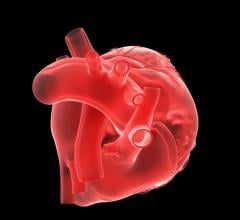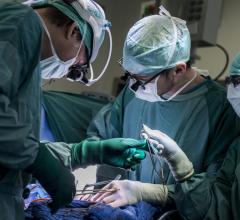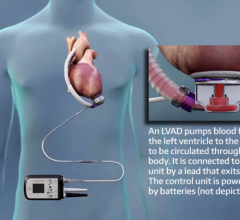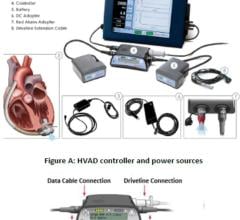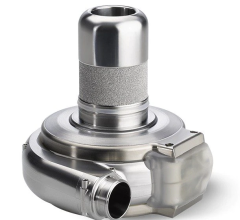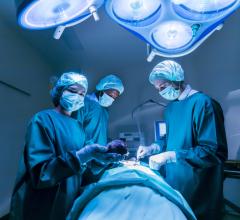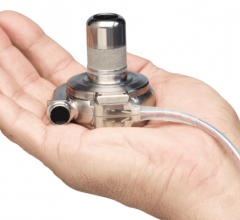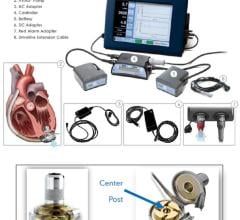
August 5, 2013 — Abiomed Inc. reported that physicians have implanted more than 15,000 Impella pumps in U.S. patients requiring hemodynamic support. The 15,000th Impella procedure took place at Mercy General Hospital in Sacramento, Calif., with an Impella pump that provided prophylactic circulatory support.
Additionally, the higher flow Impella CP device, which received 510(k) clearance from the U.S. Food and Drug Administration (FDA) in September 2012, has been implanted in more than 1,000 patients globally, after a roll-out to existing Impella 2.5 sites over the past 12 months. The 1,000th Impella CP procedure was performed at the Ochsner Medical Center in New Orleans, La.
"Impella has become an essential tool in our cath lab given its ease of use and ability to deliver minimally invasive hemodynamic support, for which there is a strong clinical need," said Michael Chang, M.D., the regional medical director, cardiovascular services of Mercy Heart and Vascular Institute of Greater Sacramento, who performed the 15,000th Impella procedure. "We are excited to be a part of this Impella milestone and are proud of the clinical benefits we've been able to provide our patients."
"The Impella CP has great potential for treating patients in need of a percutaneously deployed hemodynamic support device," said Rajan Patel,
M.D., FACC, of the John Ochsner Heart and Vascular Institute, who performed the 1,000th worldwide Impella CP procedure. "The ease of use and the level of hemodynamic support provided by the Impella CP make the device a valuable asset in the interventional cardiology toolbox."
The Impella platform, which is comprised of minimally invasive products with flow levels that vary with device size depending on the patient's need for hemodynamic support, includes the following:
- The Impella 2.5, the World's Smallest Heart Pump, which is inserted percutaneously through a small hole in the leg in the cardiac catheterization laboratory (cath lab). Once positioned in the left ventricle, the Impella 2.5 delivers peak blood flow of 2.5 liters per minute. It can be used prophylactically to ensure blood flow during other cardiac procedures or it may be used in emergency patients who require circulatory support.
- The Impella CP, which received 510(k) clearance in 2012, is also inserted via the leg in the cath lab. The Impella CP is a percutaneous, catheter-based heart pump designed to provide temporary circulatory support at a higher flow than the Impella 2.5 but with the same delivery system and ease-of-use.
- The Impella 5.0 can be inserted into the left ventricle via femoral cut down or through the axillary artery and provides up to five liters of flow per minute.
- The Impella RP is a percutaneous heart pump that is deployed across the right side of the heart to provide hemodynamic support in patients with right heart failure. The product is not FDA approved but the company is currently enrolling patients for an investigational device exemption study in the United States.
- Also in development is the Impella pediatric device, which will treat infants and children with heart failure. The Impella pediatric device is not FDA approved.
In the U.S., the Impella 2.5, Impella CP and Impella 5.0 pumps have FDA 510(k) clearance for partial to full circulatory support for up to six hours.
"There is an increasing clinical need for hemodynamic support that is minimally invasive and allows for cost-effective treatment options," said Michael R. Minogue, chairman, president and CEO of Abiomed. "Today, we recognize that more than 15,000 American patients have received support from Impella, a clear sign that Impella is becoming the standard of care for percutaneous circulatory support. We are also gratified to see the strong physician acceptance of Impella CP, as evidenced by the 1,000th patient globally. I want to thank our physicians and hospital staff partners and the entire Abiomed team for contributing to this achievement."
For more information: www.abiomed.com


 June 19, 2024
June 19, 2024 
